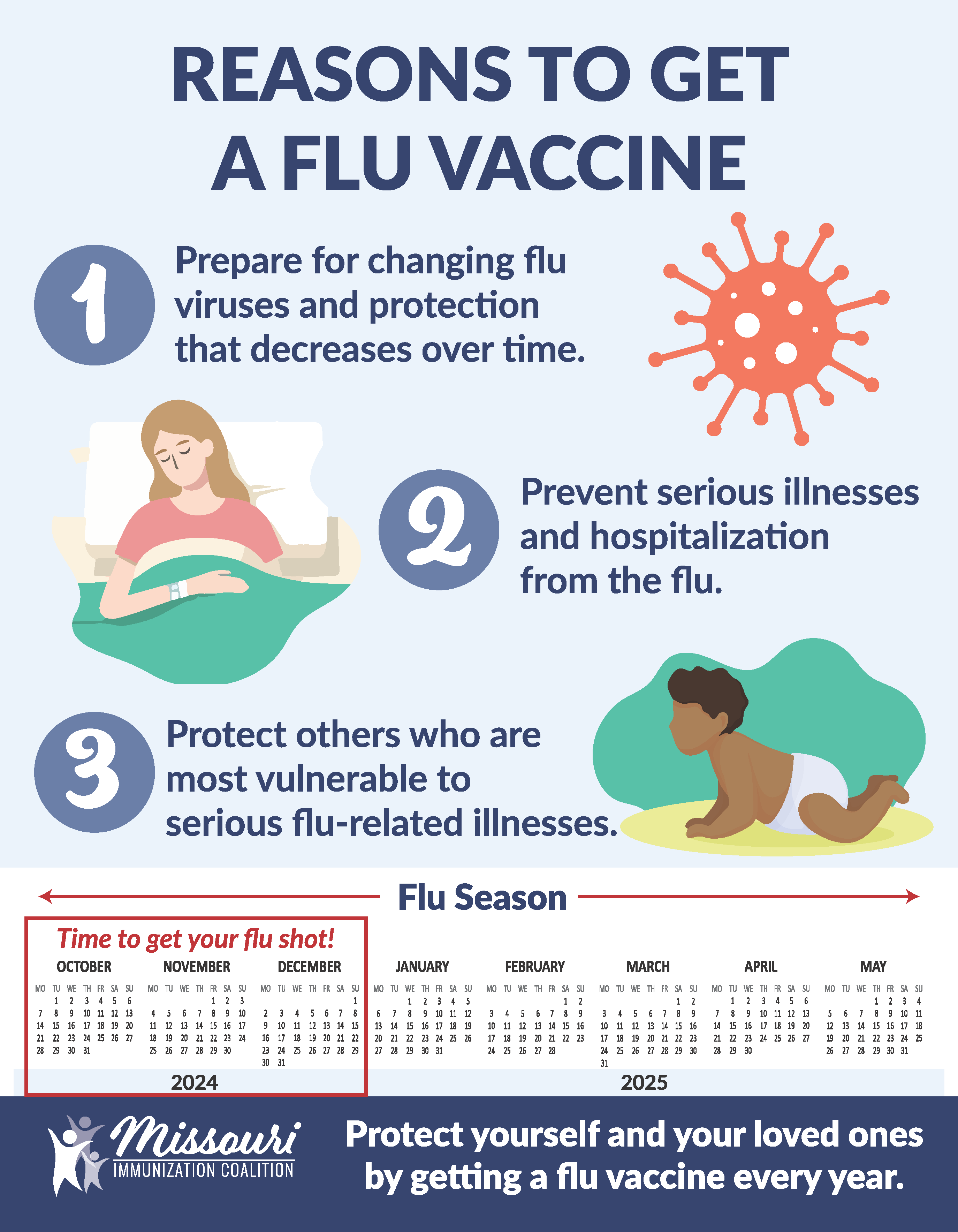About Flu Vaccines

The flu vaccine prevents millions of illnesses and flu-related hospitalizations every year. Everyone 6 months and older should get a flu vaccine every flu season.
Flu vaccines are given as a shot in the upper arm (or as a nasal spray for some). It takes about 2 weeks to develop protection from the flu virus after vaccination, so it is best to get vaccinated during the months of September and October. This allows your body time to develop protection against the virus before flu season begins.
You can get a flu vaccine anytime during pregnancy. If you are severely ill, you should talk to your doctor before getting a flu vaccine. Everyone 6 months and older should get a flu vaccine every flu season.
- Children 6 months through 8 years of age may need 2 doses during a single flu season.
- 9 years and older only need 1 dose every flu season.
Flu vaccines are updated each year to make sure that they target the currently circulating virus. Even if it is not an exact match, the flu vaccine protects the body from developing severe illness caused by the flu virus.
Timing of Flu Vaccine for Different Populations
The recommended timing of flu vaccination has not changed. September and October are the best times for most people to get vaccinated. Flu vaccination in July and August is not recommended for most people, but there are several considerations regarding vaccination in July and August for specific groups of people:
- For adults (especially those 65 years old and older) and pregnant people in the first and second trimester, vaccination in July and August should be avoided unless it won’t be possible to vaccinate in September or October.
- Pregnant people who are in their third trimester can get a flu vaccine in July or August in order to ensure their babies are protected from flu after birth, when they are too young to get vaccinated.
- Children who need two doses of flu vaccine should get their first dose of vaccine as soon as vaccine becomes available. The second dose should be given at least four weeks after the first.
- Vaccination in July or August can be considered for children who have health care visits during these months, if there might not be another opportunity to vaccinate them. For example, some children might have medical visits in the late summer before school starts and might not return to see a health care provider in September or October.
Key Facts About Flu Vaccination
- Everyone 6 months of age and older should get a flu vaccine every year.
- Flu vaccine is typically given as a shot in the upper arm.
- Children 6 months through 8 years of age may need 2 doses during a single flu season.
- Higher-dose flu vaccines are recommended for adults 65 years and older.
- The nasal spray vaccine is approved for people 2 through 49 years of age who are not currently pregnant.
- Flu vaccine does not cause flu.
- It takes about 2 weeks for protection to develop after vaccination so, it is best to get a flu vaccine during the month of October every year to be protected from the flu and its potentially serious health complications.


Last Reviewed: October 24, 2023

